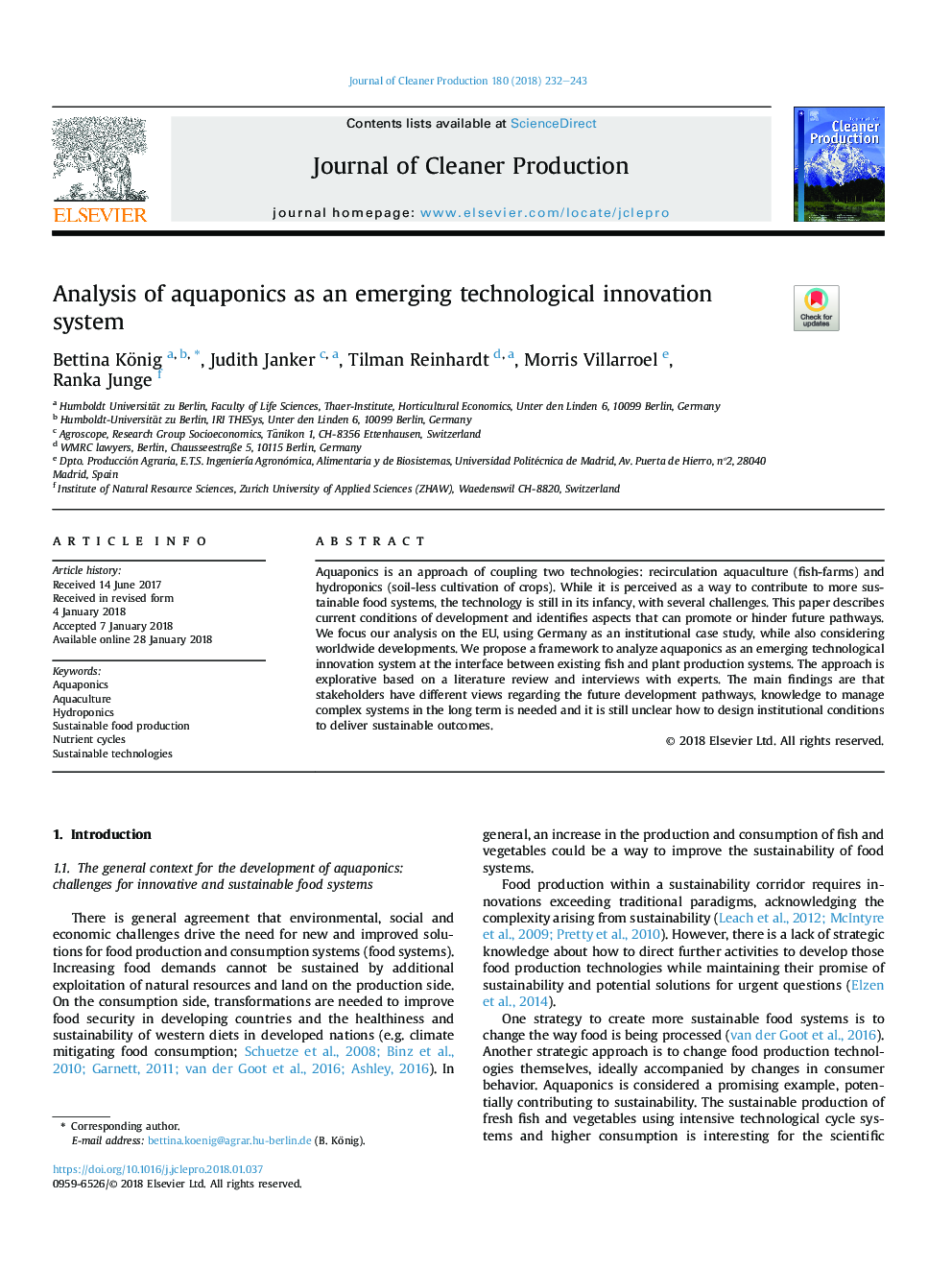| Article ID | Journal | Published Year | Pages | File Type |
|---|---|---|---|---|
| 8097887 | Journal of Cleaner Production | 2018 | 12 Pages |
Abstract
Aquaponics is an approach of coupling two technologies: recirculation aquaculture (fish-farms) and hydroponics (soil-less cultivation of crops). While it is perceived as a way to contribute to more sustainable food systems, the technology is still in its infancy, with several challenges. This paper describes current conditions of development and identifies aspects that can promote or hinder future pathways. We focus our analysis on the EU, using Germany as an institutional case study, while also considering worldwide developments. We propose a framework to analyze aquaponics as an emerging technological innovation system at the interface between existing fish and plant production systems. The approach is explorative based on a literature review and interviews with experts. The main findings are that stakeholders have different views regarding the future development pathways, knowledge to manage complex systems in the long term is needed and it is still unclear how to design institutional conditions to deliver sustainable outcomes.
Keywords
Related Topics
Physical Sciences and Engineering
Energy
Renewable Energy, Sustainability and the Environment
Authors
Bettina König, Judith Janker, Tilman Reinhardt, Morris Villarroel, Ranka Junge,
